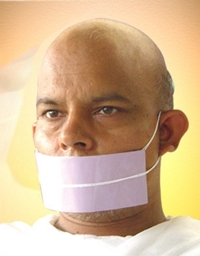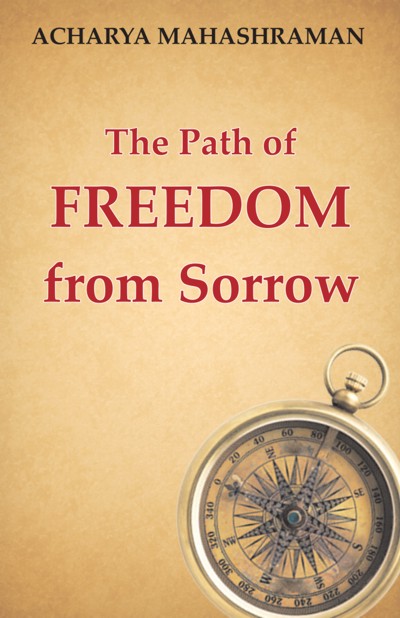Once upon a time there lived a businessman named Dhan in the Avanti city. He got blessed with a baby girl. She was the only daughter after eight sons. Therefore daughter Bhatta was extremely beloved to her parents. Because of being youngest and the dearest daughter, her father ordered everyone in the home not to address her as 'rum' (you, which is used to address younger one). Consequently, she was called by the name of Atunkari Bhatta.
Boundless love and affection of her parents and brothers inculcated arrogance and aggression in her basic nature. Now she started expecting more from everyone in the family to listen to her words. Moreover, she determined in her mind that she will marry only the person who would follow her words for the lifetime. Many years passed by and she could not find the perfect match. Finally Subuddhi, the minister of king Jitashatru, agreed to accept her conditions. On an auspicious day Bhatta got married with Subuddhi and started living with her in-laws. Subuddhi was very conscious of following each and every word of his wife. Bhatta strictly instructed him to come home every night by 9 pm. He was well aware of not to defy his wife's command. He used to manage his work in such a way that he would arrive home by nine.
One day there was an emergency issue before the king. While discussing on the issue it became midnight. After midnight Subuddhi came home. Because of disobey of the instruction, Bhatta became furious. She opened the door for her husband and moved out of the house. Subuddhi tried a lot to convince her. He apologized for his fault, but she did not listen to his single word. She left home and with intense rage started walking towards the forest in the dark night. Suddenly a few robbers saw her and took her to their chief. The chief, when saw, wanted to marry her, but she was completely devoted to her husband. She stood firm like a rock in spite of his attempt to convince her both with love and threat as well. Finally, after getting disheartened, the chief sold her to a blood-vendor. He would extract blood from her body regularly and sell it. Consequently, after some time the body of Atunkari Bhatta was nothing more than a skeleton. This painful life changed the heart of Atunkari. Now she realized, 'Anger is the most powerful enemy of man. If I would not have become angry at that moment then today I would not be in such a painful situation.' And she decided to quit the anger forever and become forgiving.
One day, in search of his sister, Bhatta's brother arrived at the very place where her blood was being taken out and sold. The brother recognized his sister in the first glance. He paid the demanded amount for her, and took her to home. Now Atunkari, would follow the words of her husband and she threw away the anger from her life as the ragged clothes are being thrown out.
Indra, the king of deities, admired the forgiving nature of Atunkari Bhatta during his assembly, one of the deities could not believe and thought to examine her. He in a form of a monk visited to Atunkari's house and asked for 'Lakshapak' oil (an oil made from one lakh herbs). As soon as the housemaid brought the pitcher of Lakshapak oil, the deity through his supernatural power broke the pitcher. In the same way he broke the three more pitchers through his power. Atunkari Bhatta did not become furious at all, even after the loss of precious things. Then the deity manifested his original form, showered the gold coins and cherished her forgiveness.
Because of anger Atunkari Bhatta arrived from her husband's house to the chief of the robbers and from there sold to blood vendor. No one knows how much hardships she endured. It was all due to the outcome of anger. We can see the negative result of anger in the life of Chandakaushik, who was a great saint and ascetic in his previous life. Unfortunately because of anger, he had to take birth in the animal kingdom instead of heaven.
Truly, anger is such a state in which man forgets to discriminate between right and wrong and the reasoning power shuts off. The fire bums only the external things, but the fire of anger burns the prime qualities of the soul. Fortunately, few people are calm naturally. They are almost free from anger. It seems that they have already done the practice of defeating the anger. Some people are aggressive by their nature. There are some guidelines for such people.
- Angry person should understand the truth that anger is harmful. Anger brings pain and as a result mind becomes restless.
- He should determine of getting rid of anger.
- Condition the mind to practice the suggested remedy to become free from anger.
- Practice the following four steps exercise to get freedom from anger.
- An aggressive man should do introspection in a stable posture and closed eyes every night before sleeping. He should audit himself in this way, 'since morning to evening (till then) how many times I got angry or not at all? If yes, then with whom? What was the reason? What was its intensity- low, medium, or high? Was it necessary to be angry? Now, I myself am responsible for whatever happened today, I reproach and condemn myself and I determine to try my best not to get angry tomorrow
After this analysis and reflection recite Namaskar Mahamantra or any holy mantra and let your mind free from thoughts. Immediately after this you go into sleep with the practice of yog-nidra (relaxation). Try to not have any thought and prolong the breath as much as you can do at ease. Inhale long and exhale long.
Next morning after waking up recite the holy mantra and repeat the resolution mentally taken last night, 'today I will try my best to be free from anger.' This is the first tips to clef eat the anger.
- The second exercise is to practice dirgh shwas preksha (long breathing) every day for 15 min at a scheduled time in meditative pose. While breathing in realize that with each breath the feeling of peace is increasing. During exhaling suggest yourself that the energy of anger is getting out. Thereafter, visualize the full moon at Jyoti Kendra (the center of enlightenment, located at the center of forehead) for 5 min. and try to experience the coolness.
- The third exercise has to be practically applied when the person feels that he is about to get angry. At that moment if possible he can move to another place leaving the present place (room or house) for a while (10-15 min) and practice long breathing. If he cannot leave the place then he should keep silence for 10-15 minutes right there. And practice long breathing with holding the breath.
- The fourth exercise is to think of any ideal person who is well-known for his calmness. For an illustration the fifth Acharya of Terapanth reverent Acharya Maghwa was believed to be man of peace and veetragkalp (equivalent to omniscient). One must remember time and again such person.
If these all exercises are put in to practice consistently for six months then it is believed that the practitioner will definitely become free from anger.
There are three types of anger: 1. Anger without any reason or any special reason. 2. Anger for some reason, and 3. Little anger even there is a reason to be angry. Next is the no anger stage. A spiritual practitioner should analyse that in which stage does he stand? What refinements does he need? In this way through spiritual practice man can heal his psychology at greater exte
 Acharya Mahashraman
Acharya Mahashraman
